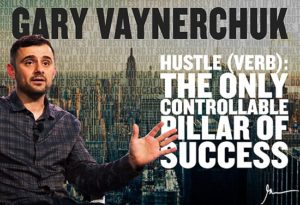Let’s break down some math on the amount of time smokers take, paid, in smoke breaks daily:
An average smoker smokes 15 cigarettes per day. I’m going to assume that when awake the smoker smokes about 1 cigarette per hour, so that’s 40 cigarettes per week smoked at work. It takes about 5 minutes to smoke a cigarette.
I’m going to assume that it takes probably 5 minutes round trip to get to your designated smoking area, 5 minutes to smoke your cigarette, so 10 minutes per break. I’ll say a good worker only smokes 6 cigarettes on the clock, so 60 minutes per day, one hour, paid to smoke. 5 hours per week paid, to smoke, 255 hours per year to smoke.
Is everyone following me?
255 hours of paid smoke breaks – or basically taking an in-office vacation for roughly 6 1/2 week per year, on top of their actual away-from-office vacation time.
So, what I’m trying to get to is how can we/HR build in non-smoker smoke breaks!? We know HR won’t do that! Can you imagine an official policy to take breaks not to smoke!? Does anyone have an official Smoke Break policy in today’s world?
Here’s my idea:
- If you don’t smoke and you have a co-worker that does smoke, just go out with them every single time they smoke. In fact, get a group of people to go with them and build and strengthen relationships, just don’t try to breath too much!
- Petition to get paid 12.5% more than someone who smokes, because that’s basically how much more your working than the average smoker.
- Take a two-hour lunch break and when HR tells you that you can’t do that, take them into a conference room and run them through the math on a white board!
I don’t understand smoke breaks. It’s kind of like sexual harassment. For the longest time we thought it was completely normal for a boss to sleep with his secretary and now we know it’s very wrong!
I’ll be honest. I feel the same way about how it became the norm to offer free coffee at work. No one has every offered me free diet Mt. Dew at work! (I take that back, my friend Jim D’Amico did at Celenese when I went to visit!)
So, we let people go take smoke breaks, paid, and it’s somehow completely fine. 5 hours per week, paid. Completely fine, to actually for real not do work. Just stand outside and slowly kill yourself and you get paid for it! How great is work!?
Let’s face it, I’m not actually mad at smokers, I’m super jealous! I can’t tell you how hard it is for me not to start smoking knowing all the great benefits you get! I’ve actually tried hanging outside with smokers, but because I was in HR, and didn’t smoke, I think they thought I was trying to get them in trouble or spying on them. I wasn’t, I just wanted all that free time off!
I’ve been thinking about starting that meditation, mindfulness crap. That might work. I could just randomly stop working, sit down in the middle of the hall all criss-cross-applesauce and just put on some headphones and close my eyes. Make people walk around me and my mindfulness break!
I wonder what HR would do? “Hey, Tim, we’re not paying you to relax, get your butt back to work! Now, if you want to get all jacked up on nicotine, that’s fine, get off the floor and go light one up!”

